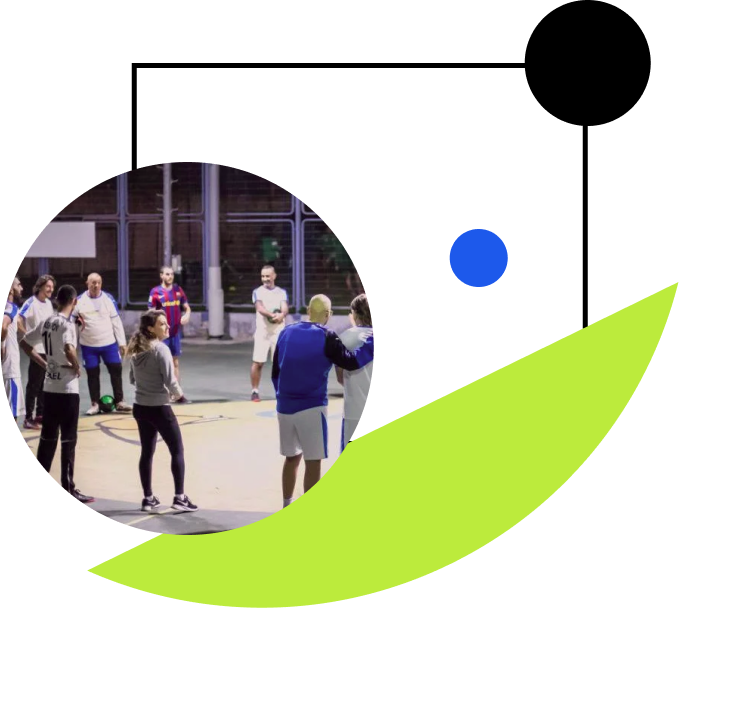
We believe that the tools for long-term change are interpersonal relationships and connection to the larger community in which you live. In every project we run, we make personal connections and build a group in order to give them a sense of belonging and encourage the community to support and get to know those who remain on the margins.

We operate two groups for homeless adults in Tel Aviv and Jerusalem. In addition, we have a group for young homeless adults (18-26) at risk operating in Jerusalem, and a group for isolated youth (13-18) operating in Holon.
We also represent Israel in the “Homeless World Cup” organization.
Halalu is a choir of homeless women. It is a place where their voices can finally be heard after they have been silenced and marginalized for most of their lives. Through expressing themselves, and participating in a group dynamic, the choir helps the homeless women gain a sense of self and raise their self-esteem. The choir also performs in front of audiences as a means of expression and empowerment for women in need.
The lockers project offers lockers in Jerusalem tailored to the unique needs of homeless people, In addition to a professional coordinator who accompanies the lockers’ users. This project provides a humane solution to common trust issues among those without permanent shelter. Providing a space to store one’s belongings allows a destitute person to re-experience ownership of personal property that was lost in life on the street, as well as a sense of security and stability.
Shishi Beiti is an initiative of Shabat evening community dinners. We bring together homeless individuals, lonely adults and community members in Jerusalem, making sure everyone has a place to gather on Shabat evening.The project aims to establish a connection between the community and the homeless, thereby alleviating the feeling of loneliness and separation, and strengthening the feelings of trust and belonging to the community among the participants.